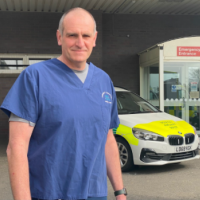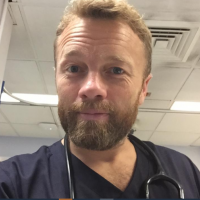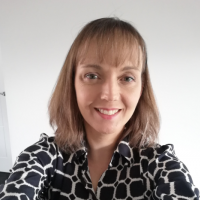Spotlight Session 1: Navigating the Pandemic Winter – Our Map and Compass; Frailty – From Front Door to Front Room; Access QI – Improving Planned Care Pathways
Navigating the Pandemic Winter – Our Map and Compass
Building on exemplary performance in unscheduled care, NHS Tayside delivered a data driven, whole system plan for winter 2020/21. Working collaboratively across Primary Care, Health and Social Care Partnerships, Acute Services and the Scottish Ambulance Service, this approach was clinically innovative and built on the principle of right person, right place, first time.
This presentation will explore how the Compass framework delivered the strategic aims of the Tayside Winter Plan – separating objectives into workstreams overseen by a clinically led, collaborative group.
A system-wide data framework ensured that pressure and readiness were considered in their entirety. Heat maps were developed covering a range of clinically relevant metrics. Heat map scores were aligned to agreed strategic actions and thus, whole system measures drove a proactive, whole system response.
Providing senior clinical decision-maker support over the phone and via virtual consultation enabled a significant number of patients to avoid a hospital attendance.
Multiple front doors ensured patients were seen by an appropriate specialist so reducing bottlenecks, facilitating early access to care and ensuring quality.
Speakers

Dr David Connell
Consultant Physician, NHS Tayside

Dr Ron Cook
Clinical Director, NHS Tayside

Jonathon Will
Clinical Effectiveness Lead, NHS Tayside

Jenni Woods
Health & Business Intelligence Lead (HBI Team), NHS Tayside
Frailty – From Front Door to Front Room
For Tayside Medicine for the Elderly (MFE), redesign is a continuous process of development with the aim of treating patients at home where requested and possible – Home First.
Since the integration of health and social care, MFE has worked to develop whole systems pathways of care which focus on the patient rather than individual parts of the system. This has progressed significantly with the introduction of the Tayside Unscheduled Care Board, whose vision and beliefs are underpinned by the Tayside Older People’s Standards with the aim of improving standards of care while reducing hospital induced dependency.
This presentation will also explore how the development of a dedicated Acute Frailty Team within the Acute Medical Unit enabled early identification and assessment of frail elderly patients. Patients are transferred to the appropriate setting in a timely manner to continue assessment. Fundamental to this is a unique, highly specialised multidisciplinary team with the skills and confidence to work towards an early planned date of discharge and ongoing assessment at home. In addition to benefitting patients, this model has resulted in improved staff satisfaction and excellent training opportunities.
Speakers

Dr Helen Elder
Specialty Doctor – Medicine for the Elderly, NHS Tayside
Access QI – Improving Planned Care Pathways
Quality improvement is an internationally-recognised methodology to address challenges in delivering healthcare. It can be used to support the recovery from the Coronavirus (COVID-19) pandemic by re-designing elective care pathways to improve waiting times.
This session will focus on using quality improvement to improve waiting times and access to care. Through practical experience, delegates will hear how NHS Boards have used quality improvement to redesign elective care pathways during the pandemic. This includes examples of access to care where:
- Elective care teams have worked with GPs and community teams to re-design pathways to support patients in the community and reduce demand on elective care;
- Elective care pathways have been re-designed to improve flow resulting in an average reduction in time from GP referrals to diagnostic by over 100 days; and
- Improvement data has been used to differentiate when changes are predicted to lead to sustainable changes to waiting times compared to temporary short-term reductions in waiting times.
Delegates will be able to explore the benefits and challenges of using quality improvement methodology for improving access to care and consider how to apply this within elective care services to improve waiting times. Delegates will be provided with access to tools and resources and will learn about the support available by becoming part of Access QI.
Speakers

Dr Yeshi Bhushan
Consultant Gynaecologist and Clinical Lead, NHS Tayside

Thomas Monaghan
Portfolio Lead – Access QI, Healthcare Improvement Scotland

Cathy Young
Head of Transformation, NHS Grampian